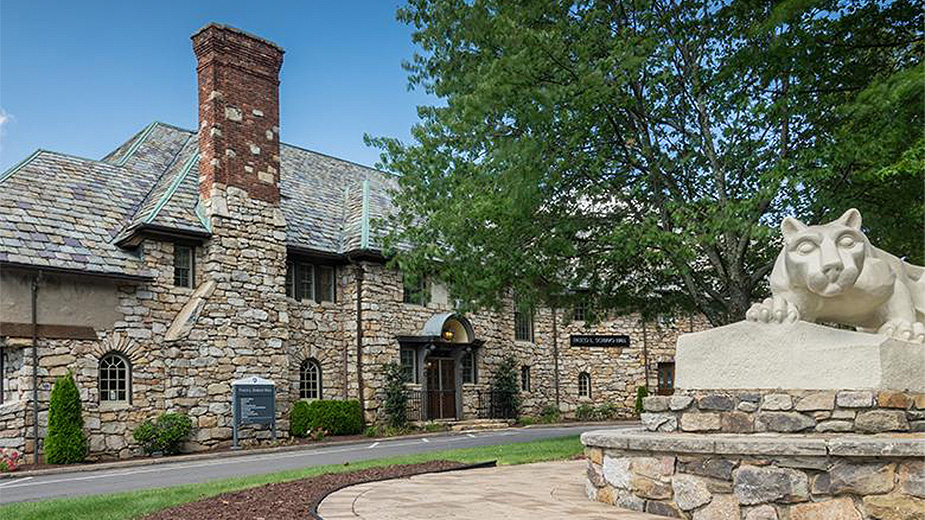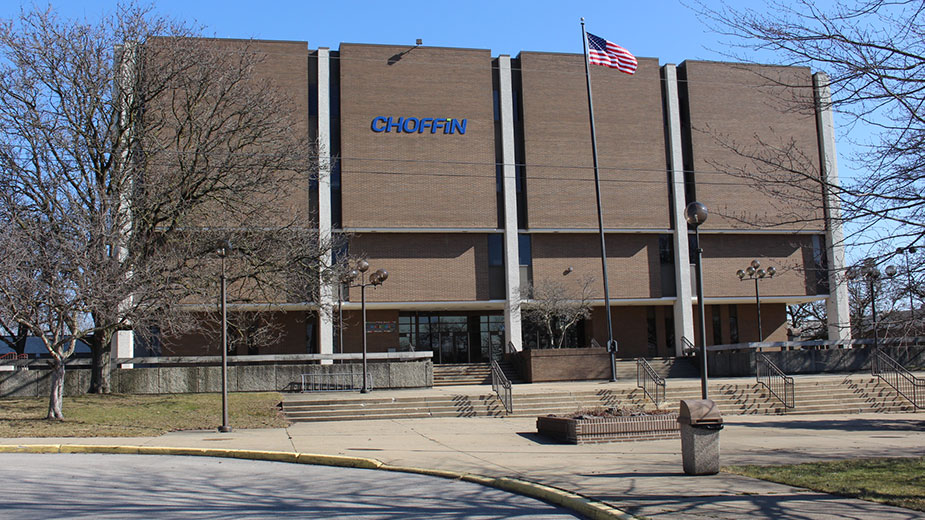Commonwealth Campuses Exploring Regionalization Opportunities
UNIVERSITY PARK, Pa. – As part of the operational transformation for its Commonwealth Campuses, Penn State is undertaking a new vision-setting initiative for the campuses to leverage local and regional strengths and create structural efficiencies.
The move is aimed at enhancing the experience for both students and employees.
Together with the Office of the Vice President for Commonwealth Campuses, campus chancellors and teams they have identified are beginning to meet with stakeholders, including representatives from the University Faculty Senate and University Staff Advisory Council, as part of the Future State initiative to identify distinct areas of excellence and opportunities to create regional synergies among neighboring campuses.
“Our goal is to identify signature areas of strength for our campuses that we can scale up to be more impactful, while also looking at the needs of the communities these campuses serve to better support economic and workforce development demands,” said Margo DelliCarpini, vice president for Commonwealth Campuses and executive chancellor. “We also are exploring how we can create synergies so that no campus operates in isolation, but instead collaborates to address these regional needs.”
This work, which has been in development since spring 2024, restarted in earnest in late August and will continue through the fall semester. Proposed models will then be shared with the university’s senior leadership for review by December.
“Penn State has to adapt and evolve in the changing environment of higher education,” said David Witwer, distinguished professor of American studies and history, who is participating in the development of the Future State. “This initiative provides the opportunity to take stock of our strengths and opportunities, suggest changes and discuss ideas with folks from across the college, and ultimately create pathways to build on strengths and address gaps to help Penn State Harrisburg continue to grow and meet our land-grant mission.”
At Harrisburg, Witwer said the campus has developed a unique service opportunity for students, in which they provide volunteer service to the Gettysburg Foundation. The program benefits both the historical Gettysburg battlefield and its ability to continue to honor the historical significance of this site, but also provides a unique learning and engagement opportunity for students, in which they gain valuable knowledge outside the classroom.
Marianne Gable, manager of the Chancellor’s Office at Penn State Scranton and chair of the campus’s Staff Advisory Council, is one of the Penn State Scranton TriChairs for Future State. She said her campus is stretching their innovative thinking when it comes to Future State.
“Even if we have discussed a potential idea before, we are revisiting it and presenting it again to see what innovations might help us achieve our goals,” she said. “We already are seeing increased communication across campuses as part of this process as we explore new strategies to utilize our limited resources more efficiently. I’m honored to have the opportunity to be a part of this initiative to transform the Commonwealth Campuses.”
The Future State initiative will progress alongside the university’s Academic Portfolio and Program Review, and both will identify areas for growth and efficiencies. In addition, DelliCarpini will be working with the University Faculty Senate and Academic Affairs leaders to pinpoint challenges and unsustainable practices in instruction to better define academic offerings on individual campuses and in regions.
Shared Services
Similar to the Optimized Service Teams that went into effect July 1 for staff and technical service employees at the Commonwealth Campuses in facilities, information technology and finance, the university is exploring other areas in which regional or central teams can provide support services to groups of campuses. This will allow staff to specialize in their chosen profession and equalize the services available across Penn State locations.
“We are responding to fiscal needs, but we are taking a strategic approach and also looking at how we can expand our capacity and access at our locations across Pennsylvania,” said DelliCarpini. “Currently, on many of our campuses, the absence of a staff member – whether due to retirement, resignation or vacation – results in their responsibilities being temporarily shifted to others who may work in entirely different fields. By building teams of cross-trained professionals in specific areas, we can improve how we serve our students and respect the expertise of our staff by allowing them to immerse themselves in their chosen profession.”
In some cases, service teams will be organized into regions, some aligning with the recently implemented regional leadership structure, while others will be based on strategic needs or strengths of particular campuses. For other service teams, there will be a central point of contact in the Office of the Vice President for Commonwealth Campuses who will set direction and strategy. Following recent changes, an updated list of points of contacts for business services at each campus is now available online.
Regional Enrollment Management Case Study
The reorganization of these service teams is modeled on a similar, earlier restructuring of enrollment management that Penn State began in fall 2022 at its western campuses. Separate offices of Enrollment Management at the Beaver, Fayette, Greater Allegheny, New Kensington and Shenango campuses were organized into one team of professionals under the leadership of a regional director. With their proximity and history of collaboration, these campuses were uniquely positioned to pilot regional strategies to recruit students to Penn State from areas that have faced demographic shifts and declines in the traditional student population. The result has been a more efficient and collaborative admissions approach that better meets the needs of prospective students in their communities.
Over the next year or so, the restructuring of additional service teams will take place in three phases, according to DelliCarpini.
Phase 1
Phase 1, which is underway, includes staff in Continuing Education, Enrollment Management and the Registrar.
“We have a wonderful model for a regional approach to Enrollment Management that has produced positive outcomes in the west, and we will be expanding this model to regional teams in other parts of the Commonwealth,” said DelliCarpini. “We will take a similar approach for the services provided by staff in the Registrar’s Office.”
For Continuing Education, the Future State initiative will identify unmet needs in the communities served by the campuses. In conjunction with the Academic Portfolio and Program Review, the goal is to better align each location’s Continuing Education offerings with regional workforce demands and local economic development needs. By building partnerships with local business and industry, programs can be tailored to meet the specific needs of the community.
“The needs in a suburban community may look very different from those in a more rural community, and we are looking at ways to identify and meet needs through academic programming and collaboration with our K-12 and economic partners,” she said.
Phase 2
Phase 2 of the transformation will start early in fall 2024 and will focus on staff who work in advising and instructional design.
For all the shared services teams, but for advising in particular, the university is developing benchmarks to determine staffing needs. The number of academic advisers needed on a campus depends on the campus’s enrollment. At present, there are some inequities among the campuses that will be resolved by restructuring into regional teams, according to DelliCarpini. At some smaller campuses, for instance, the student-to-adviser ratio is significantly lower than at some larger campuses. By moving to regional teams, campuses may share advising services so that students at every location have the same level of access to resources.
“Some campuses may share academic advisers, and we are working on ways to increase their availability so that students can seek counsel from their advisers at times that are convenient to the students’ schedules, understanding that their days often include jobs, family and child care responsibilities, in addition to coursework and extracurriculars,” DelliCarpini said. “Our faculty will be deeply involved in this process as it is tied so closely to academic affairs.”
Phase 3
During Phase 3, which will start later in the fall semester, services provided by Strategic Communications and Student Affairs will be restructured into shared services teams.
“Many of our Student Affairs roles require a daily on-campus presence, but there are still opportunities for collaboration and regionalization that would provide students with more equitable service levels across the campuses, while also creating efficiencies,” DelliCarpini said. “Work on the Student Affairs teams will likely continue through early spring given the breadth of the important work this department does across the Commonwealth.”
Looking Ahead
By the end of the fall semester, DelliCarpini expects to have a comprehensive picture of what the Commonwealth Campuses will look like at the conclusion of the regionalization efforts, Future State initiative and APPR. The full transition, however, is expected to take several years.
At that point, metrics will be developed to measure what’s working well and what needs improvement, allowing for adjustments in operations, staffing levels and campus offerings.
“I’m thankful that President [Neeli] Bendapudi’s commitment of up to $20 million for the Commonwealth Campuses provides us with more time to take a really thoughtful approach to transforming our campuses,” DelliCarpini said. “This restructuring has to happen to forge a stronger and more sustainable future for the campuses and the communities and families they serve.”
CREDIT: Penn State.
Pictured at top: The Penn State Hazleton (Dekka Studios)
Published by The Business Journal, Youngstown, Ohio.



